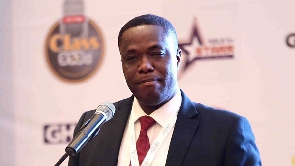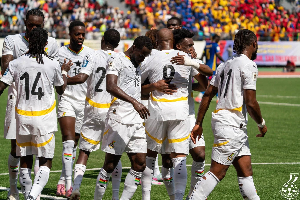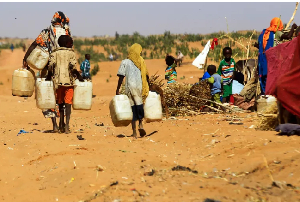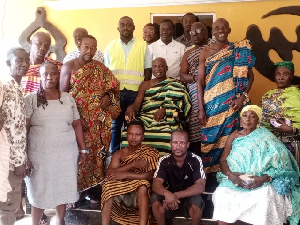The financial services industry has been called upon to unite in engagements concerning the Domestic Debt Exchange Programme (DDEP), as unfavourable terms will have long-lasting implications on every aspect of the industry.
Speaking at his investiture as the new Chartered Insurance Institute of Ghana (CIIG) president, Solomon Lartey – Chief Executive Officer (CEO) of the Africa Sureties and Insurance Advisory Company, said the industry must come together to arrive at a conducive solution for (DDEP).
“We are different sides of the same coin; whatever affects one side, affects the other as well,” he stated emphatically.
According to Mr. Lartey, insurance companies would not be able to meet obligations with total liabilities of over GH¢5.96billion, adding that more than 7.5 million insurance policies would be affected if they are not exempted from the Programme.
“Thousands of people could also lose their livelihoods. Insurance companies (life and non-life) pay over GH¢4.3million worth of claims to companies and individuals on a daily basis. This would also be lost. And these figures do not include pensions, health and securities – the picture is much worse than it seems,” he added.
The CIIG president said it would be sad to see all the gains made to increase insurance coverage to more than 40% destroyed due to this debt exchange programme. “Insurance penetration currently stands at 1 percent, and this could get worse,” he further stated.
Turning his attention to the banking sector, Mr. Lartey said 17 of the country’s 23 commercial banks would have their capital adequacy ratios fall below 10 percent and require a new capital injection of more than GH¢16 billion to be able to stay in business.
“Banks losses could be as high as GH¢14.5billion, and most of them would have to downsize to keep some portfolios afloat. These would lead to a credit squeeze and high cost of credit. The trickle-down effect on Ghana’s industry and commercial activities would be dire,” he said.
Mr. Lartey argued that the current global economic temperature demands increased vigilance on the part of financial services providers.
Citing the 2023 Global Risk Report by the World Economic Forum – which predicted that the energy supply crisis, cost-of-living crisis, rising inflation, food supply crisis and cyberattacks on critical infrastructure would be among the top risks for 2023 with the most significant potential impact on a global scale – the practitioners said that there is no easy escape route.
“This is evidenced in the current economic crisis faced by Ghana: namely high inflation at 54.1 percent; depreciation of the cedi; high fuel prices; rising food inflation; a high national debt necessitating another visit to the IMF; and the current debt exchange programme,” he said.
The CIIG is the mother-body of all insurance professionals in the country, which brings together practitioners from life and general insurance, and reinsurance, health insurance companies, broking firms, pensions, securities and trustee firms. Mr. Lartey is the CIIG’s 9th president. He took over from Mr. Tawiah Ben-Ahmed, CEO-Sanlam Life Ghana.
Business News of Wednesday, 25 January 2023
Source: thebftonline.com













